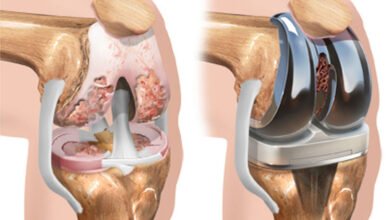Enhancing Food Safety with Biotech in 2023

Food safety is a paramount concern in today’s world, where global trade and complex supply chains make it challenging to ensure that the food we consume is safe and free from contaminants. Traditional methods of ensuring food safety, such as quality control measures and testing, have their limitations. However, in recent years, biotechnology has emerged as a game-changer in the field of food safety, offering innovative solutions to address these challenges. By leveraging the power of genetic engineering and other biotechnological advancements, we can enhance food safety in 2023 and beyond.
In this article, we will explore how to enhance food safety with biotech in 2023. We will delve into the potential of biotechnology to revolutionize food safety, including genetic engineering for disease resistance, improving food preservation techniques, and enhancing nutritional content. We will also address public concerns and misconceptions surrounding biotechnology in food safety, as well as showcase real-life case studies to highlight its practical applications.
Read More: Best Health Tech Devices & Applications in 2023
The Importance of Food Safety
Food safety is crucial for safeguarding public health and preventing foodborne illnesses. Contaminated food can lead to severe health consequences, ranging from mild gastrointestinal discomfort to life-threatening infections. In addition, foodborne illnesses impose a significant economic burden on healthcare systems and can damage consumer trust in the food industry. Therefore, it is imperative to implement effective measures to ensure the safety of our food supply.
Traditional Methods of Ensuring Food Safety
Historically, various methods have been employed to ensure food safety. These include quality control measures, such as Good Manufacturing Practices (GMP) and Hazard Analysis and Critical Control Points (HACCP), which aim to minimize contamination risks during food production and processing. Additionally, testing and inspection play a vital role in identifying potential contaminants and ensuring compliance with safety standards.
Limitations of Traditional Methods
While traditional methods have been effective to some extent, they have their limitations. Quality control measures and testing are reactive approaches that detect contamination after it has occurred, making it challenging to prevent contamination from reaching consumers. Moreover, these methods are often time-consuming and labor-intensive, which can lead to delays in identifying and addressing safety issues.
Biotechnology: A Game-Changer in Food Safety
Biotechnology offers innovative solutions to enhance food safety by leveraging the power of genetic engineering and other advancements. By modifying the genetic makeup of crops and food products, we can improve disease resistance, enhance preservation techniques, and even enhance their nutritional content.
Genetic Engineering for Disease Resistance
One of the key applications of biotechnology in food safety is genetic engineering to enhance disease resistance in crops. By introducing genes that confer resistance to pests, diseases, or environmental stress, we can reduce the need for chemical pesticides and minimize the risk of contamination. This not only improves food safety but also promotes sustainable agriculture practices.
Improving Food Preservation Techniques
Biotechnology has also revolutionized food preservation techniques. Through techniques such as biopreservation, we can extend the shelf life of perishable foods without relying on artificial preservatives. By using natural antimicrobial agents or modifying the metabolic processes of microorganisms, we can inhibit the growth of pathogens and spoilage organisms, ensuring safer and fresher food for consumers.
Enhancing Nutritional Content
Biotechnology offers the potential to enhance the nutritional content of food products. By genetically modifying crops, we can increase their nutrient content, such as vitamins, minerals, and antioxidants. This can address nutritional deficiencies and contribute to better overall health outcomes. Furthermore, biotechnology can help develop crops with reduced allergenic potential, minimizing the risk of food allergies.
Addressing Public Concerns and Misconceptions
As with any emerging technology, biotechnology in food safety raises public concerns and misconceptions. It is essential to address these concerns and provide accurate information to build public trust.
Safety Regulations and Testing
Stringent safety regulations and testing protocols are in place to ensure the safety of biotech-derived food products. Before any genetically modified organism (GMO) is approved for commercial use, it undergoes extensive testing to assess its safety for human consumption. Regulatory bodies, such as the Food and Drug Administration (FDA), carefully evaluate the scientific evidence before granting approval.
Labeling and Transparency
The labeling of genetically modified foods is a topic of debate. While some argue for mandatory labeling, others emphasize the need for clear and transparent information. Proper labeling can empower consumers to make informed choices while fostering transparency in the food industry.
Public Awareness and Education
Promoting public awareness and education is crucial to dispel misconceptions surrounding biotechnology in food safety. By providing accurate information and engaging in dialogue, we can foster a better understanding of the benefits, risks, and responsible use of biotechnology.
Biotechnology in Action: Case Studies
Several case studies demonstrate the practical application of biotechnology in enhancing food safety.
GMO Crops and Reduced Pesticide Usage
Genetically modified crops, such as insect-resistant Bt cotton and Bt corn, have shown significant reductions in pesticide usage. This not only minimizes environmental contamination but also reduces the potential health risks associated with pesticide exposure for farmers and consumers.
Genetic Modification for Food Allergen Reduction
Biotechnology can also be used to reduce the allergenic potential of food products. For example, genetic modification has been employed to develop hypoallergenic peanuts, which can significantly reduce the risk of severe allergic reactions in susceptible individuals.
Biopreservation Techniques for Extended Shelf Life
In the realm of food preservation, biopreservation techniques have shown promise. For instance, the use of bacteriocins, which are antimicrobial peptides produced by bacteria, can inhibit the growth of pathogens and extend the shelf life of dairy products, meat, and other perishable foods.
Potential Future Applications of Biotechnology in Food Safety
The potential of biotechnology in enhancing food safety extends beyond the current applications. Here are some possible future applications:
Detection and Rapid Response to Contamination
Advancements in biotechnology can enable the development of rapid and sensitive detection methods for foodborne pathogens and contaminants. This would allow for swift response and mitigation of safety risks, reducing the chances of widespread outbreaks and minimizing the impact on public health.
Personalized Nutrition and Food Sensitivity Testing
Biotechnology can contribute to personalized nutrition by developing food products tailored to individual needs. Genetic testing and analysis can identify genetic markers related to food sensitivities, enabling personalized dietary recommendations and safer food choices.
Sustainable Agriculture and Climate Change Adaptation
As climate change poses challenges to food production, biotechnology can help develop crops with enhanced resilience to environmental stressors. By improving the adaptability and sustainability of agriculture, biotechnology can contribute to long-term food security and safety.
Ethical Considerations and Responsible Use of Biotechnology
While biotechnology offers significant potential for enhancing food safety, it is essential to address ethical considerations and ensure responsible use.
Balancing Risks and Benefits
The responsible application of biotechnology requires a balanced approach, weighing the risks and benefits associated with each innovation. Ethical frameworks and regulatory oversight play a crucial role in ensuring that potential risks are thoroughly assessed and mitigated.
Intellectual Property Rights and Access to Technology
The issue of intellectual property rights and access to biotechnology is an important ethical consideration. It is essential to strike a balance between protecting innovation and ensuring equitable access to biotechnological advancements for both developed and developing nations.
Environmental Impact and Biodiversity
The environmental impact of biotechnology on food safety should be carefully evaluated. Measures should be taken to prevent unintended consequences, such as the potential impact on biodiversity or the development of resistant pests and pathogens.
Conclusion
In conclusion, biotechnology holds immense potential for enhancing food safety in 2023 and beyond. By leveraging genetic engineering, biopreservation techniques, and other advancements, we can address the limitations of traditional methods and ensure safer and healthier food for consumers. However, it is essential to address public concerns, promote transparency, and ensure responsible use to foster trust in biotechnology. With careful consideration of ethical, safety, and environmental aspects, biotechnology can play a crucial role in shaping the future of food safety.
Read More: The Impact of MediKnowledge on Patient Care in 2023
FAQs
What is biotechnology’s role in food safety?
Biotechnology plays a significant role in food safety by offering innovative solutions such as genetic engineering for disease resistance, improving food preservation techniques, and enhancing nutritional content.
Are biotech-derived foods safe to consume?
Yes, biotech-derived foods undergo rigorous safety testing before they are approved for commercial use. Regulatory bodies evaluate the scientific evidence to ensure their safety for human consumption.
How can biotechnology help reduce pesticide usage?
Genetically modified crops with built-in pest resistance traits reduce the need for chemical pesticides, leading to reduced pesticide usage and minimizing the potential risks associated with their use.
What is the future of biotechnology in food safety?
The future of biotechnology in food safety holds immense potential, including rapid contamination detection, personalized nutrition, and developing crops with enhanced resilience to climate change.
What ethical considerations are associated with biotechnology in food safety?
Ethical considerations include balancing risks and benefits, ensuring equitable access to technology, and evaluating the environmental impact and potential effects on biodiversity.







